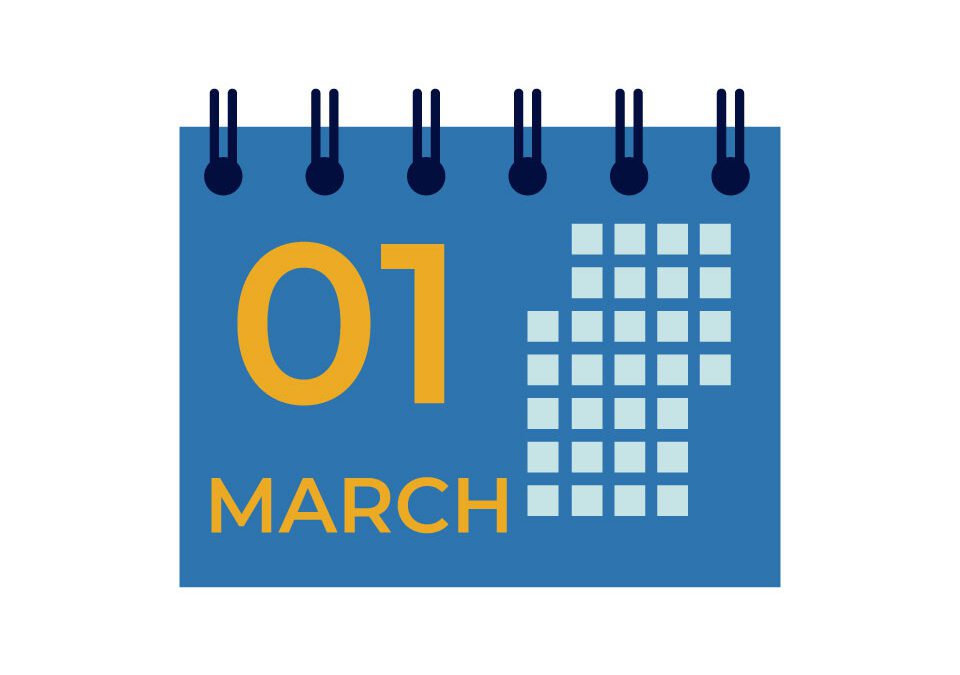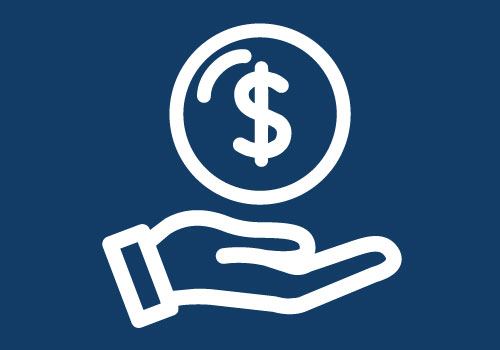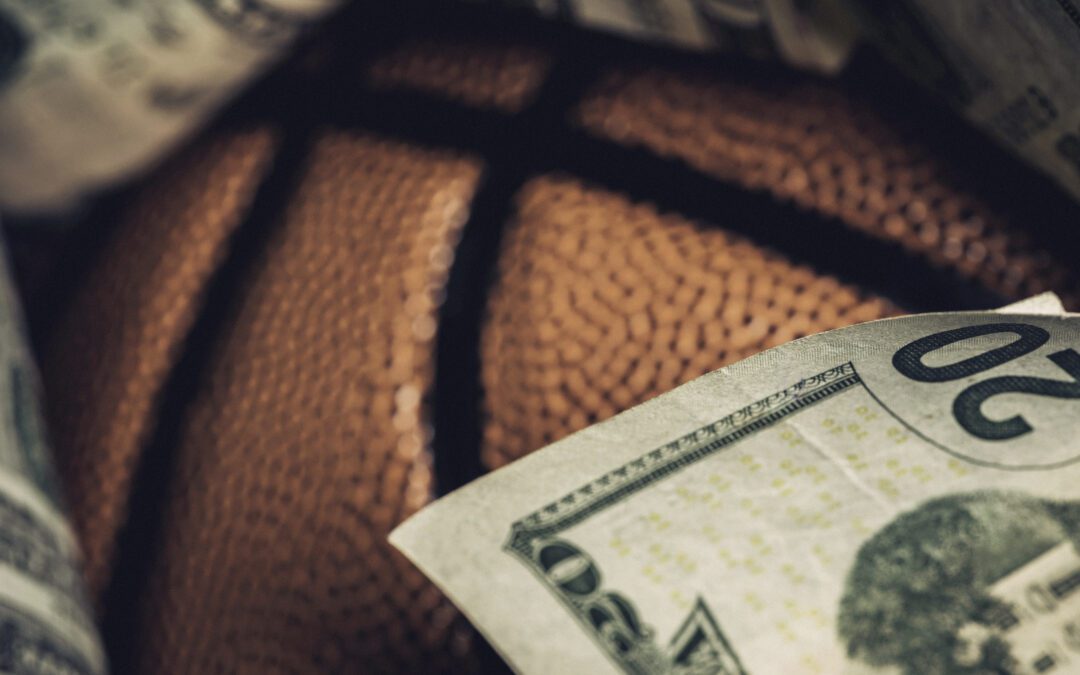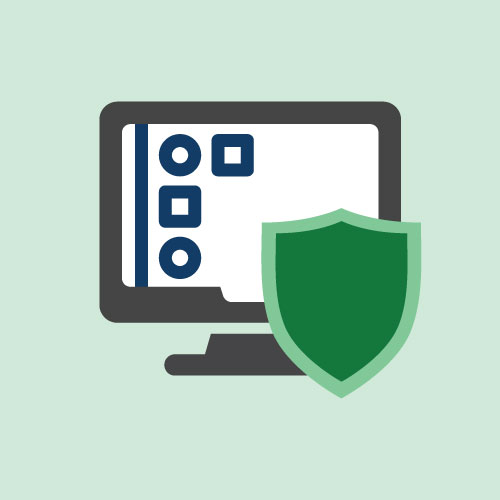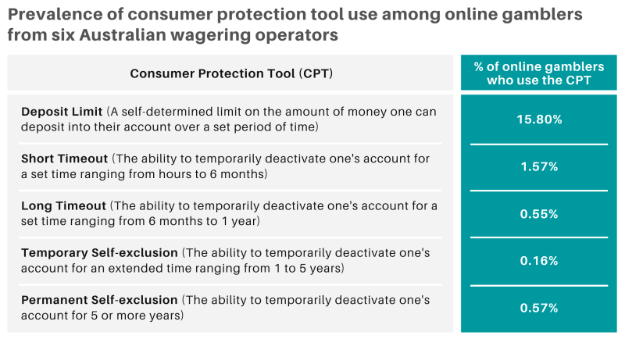
May 25, 2022 | ADVOCACY, PROBLEM GAMBLING
MNAPG Northern Light Spring 2022
This March marked the nineteenth observance of the National Council on Problem Gambling’s (NCPG) Problem Gambling Awareness Month. Along with the 35 state affiliates, NCPG focuses extra efforts throughout the month to raise awareness that gambling addiction is a public health issue, to reduce its stigma and to emphasize that gambling disorder is a treatable and chronic condition.
For MNAPG’s part, we increased our public awareness campaigns through paid social media and the Star Tribune. NCPG provided a daily message which we coupled with an appropriate graphic and shared on our Facebook, Instagram, Twitter and LinkedIn pages.
We had several small campaigns using the Star Tribune’s digital reach and targeted emails. We ran a campaign focused on the problem gambler for the first half of the month, and then switched to a focus on sports betting to coincide with the heightened attention of the NCAA basketball tournament. These are examples of those ads:

Another annual campaign associated with PGAM is National Problem Gambling Screening Day, the second Tuesday in March, when we reach out to healthcare professionals in the substance disorder and mental health arenas to raise awareness that gambling addiction is often co-occurring. We try to emphasize that minimal screening would go a long way in helping those who may have a gambling problem seek the help they need. Unfortunately, most LADCs and social workers lack training in treating problem gambling and may not even be aware that it’s an issue to discuss with clients. We encourage them to ask the three brief bio gambling screening questions. If their client answers yes to any of the three questions, it’s recommended that the individual seek a more thorough assessment to determine if they have a gambling disorder or is at increased risk.
We also tried something new this year. We geofenced the capitol complex, meaning that anyone with a cell phone who entered the capitol, senate or house buildings would likely see one of our ads directed to legislators with some basic statistical information. We know that many state legislators know little about problem gambling, and as the body considers legalizing sports betting, we wanted to remind them of the issue. The success of this effort is unknown as of this writing as the analytics have not yet been processed. We will analyze this info and likely continue to nudge legislators as the bill continues to move through the body and as MNAPG proposes additional legislation.

May 25, 2022 | PROBLEM GAMBLING, RECOVERY, STORIES
MNAPG Northern Light Spring 2022
At a very young age, I remember people telling me, “You’re lucky. You’re just like your grandma.”
Well, my grandmother was a compulsive gambler. But gambling didn’t have devastating consequences to her life because she could only gamble the set amount of money my grandfather gave her. Her gambling never caused her to go without food or to miss rent.
I was raised in a very dysfunctional family. My mother used drugs and would let drug dealers and users sexually abuse her for drugs. As a result, I grew up with no boundaries and would do everything I could to not feel anything.
Until my mid 30s, I went to casinos every now and then, maybe once a year. It was fun. But then two things happened. First, I got divorced, and I started going to the casino more. And second, I got a big win.
When I first won big, I remember thinking this should be my job, that I could never make money this fast. My bets got higher to get the same dopamine rush.
It didn’t take long before I knew I had a gambling problem, but I didn’t know how to label it. I called myself a “gamblaholic” because I didn’t know of any other term. Nobody told me to get help.
I spent a six-figure court settlement in the span of three months and lived in seven places in less than a year. I dated men and essentially had sex for money so that I could continue to gamble.
It got to the point where every time I was driving back to the casino, I’d think about ways I could hurt herself. The wanting to die consumed me. I thought, “If I win, I’ll live. If I don’t, then I can always commit suicide.” I tried to commit suicide three times.
I needed and wanted help, so I googled gambling help in Minnesota. I called and had an intake meeting with an outpatient counselor. She highly recommended that I go for inpatient help at Vanguard Center for Gambling Recovery. However, I had joint custody and after a tumultuous divorce my ex would not take my son beyond the schedule. I wanted so badly to get help but felt stuck.
A week after I tried to hang myself, my final suicide attempt, my 18-year-old son finally said to me, “Mom, please go get help.” He said he would take care of the house and his brother so that I could go. I can honestly say that he saved my life. I had no more excuses to not get help.
My gambling often went hand-in-hand with using meth. Thankfully, Vanguard was able to help with both issues. There is no question in my mind that getting over gambling is much harder than getting over drugs, even though gambling doesn’t involve ingesting anything into your body.
Indeed, there is so much that people don’t understand about gambling addiction, even in health care. I work in nursing, and when I talk to the providers about gambling disorder, most say they never received training on the topic. I tell them about the high suicide rate, that you can’t wake up and be sober as you can from alcohol, and that when you look at your checking account, it’s still negative. These providers may see people with gambling problems but have no idea where to send them for help.
I’ve talked to my pastor often and try to share my story at church, where they most often talk about drug and alcohol addiction. I am willing to share my story to anyone if it can help somebody.
If anyone reading this wonders if they have a problem and are on the fence about what to do, here is what I would say. Go online and learn about gambling addiction. Take the 20-question screening to see how many questions you answer “Yes” to. Then, if it’s appropriate, seek help, whether it’s searching for “Minnesota gambling help,” looking into Gambler’s Anonymous or calling the state’s helpline (1-800-333-HOPE). People who are struggling should also know that there are programs to help them financially so they can get treatment.
My story is not very pretty, but I am truly grateful for my addiction because it has turned my life around. My relationships are better, I’m honest and open, and am able to share things that bother me. I’m happy and working hard to earn a paycheck. I appreciate this so much more than if I didn’t have a gambling addiction and hadn’t gotten help. I have serenity.

May 18, 2022 | HEALTHY PLAY, PROBLEM GAMBLING
MNAPG Northern Light Spring 2022
In Denmark, the Ministry of Taxation will require mandatory players’ cards beginning July 1, 2022. This will eliminate the ability for a player to bet anonymously. Danish authorities hope it will reveal gaming patterns as a means of detecting signs of money laundering or match fixing. It will also prohibit players under the age of 18 from placing a bet, notify whether a player has voluntarily self-excluded from gambling, or if they have exceeded their self-set spending limit before a wager is made. While the impetus behind this regulation is to reduce crime, tools such as these show promise in identifying players who can’t keep to their spending limits before they’re betting gets out of hand.
Would U.S. players welcome the opportunity to have easy access to their own records, which might include the amount of money they’ve spent, won, and lost, and the time they’ve spent gambling? Would they be willing to set limits, and how often they adhered to the limits? We would like to think so, and thus have added these components to MNAPG’s regulatory list for online sports betting. Until we know more about when the sports betting legislation passes and the form that it takes, it’s hard to say how much influence MNAPG can have in shaping these important responsible gambling regulations.

May 18, 2022 | PROBLEM GAMBLING, SPORTS BETTING
MNAPG Northern Light Spring 2022
In January, Minnesota’s Louie Anderson, a nationally beloved comedian, died. His death was felt in comedy circles as well as among Minnesotans who took pride in a local boy making it big.
As with all of us, however, he had his human frailties. He also made an impact on the recovery and addiction community, where he was known for his candid stories about growing up with an abusive, alcoholic father, but he also had a gambling problem.
In a 2016 interview, < link to https://www.youtube.com/watch?v=hTMWugFklMo> when Louie was in the thick of his gambling addiction, he shared the story of a night when he lost $80,000 in Los Angeles, then drove to Las Vegas and won $100,000 in the middle of the night, making it back to Los Angeles in time to film a television commercial the very next morning. The interviewers seem more entertained by the story than interested in exploring his gambling addiction.
Depending on the news outlet, Louie was either a big-time, revered gambler —or he had a gambling problem. Indeed, the perceptions of gambling based on celebrity behavior can be deceiving.
Stories of celebrity gambling can normalize, if not trivialize, how destructive the activity can be. While the wealth amassed by many celebrities can appear to minimize the magnitude of their gambling, it’s clear that gambling can — and has — become a problem for some. Indeed, we know that gambling addiction is an equal opportunity employer and can affect virtually anyone – men or women, young or old, and those from every religion, race and socio-economic background. Sadly, that includes celebrities.
Section from Season of Sports Betting
Other notable findings detailed by SportsHandle.com, which were based on data from an online study conducted by National Research Group, included the following:
- Thirty-nine percent of bettors reported that they wagered a total of at least $250. (Sixty-three percent reported betting at least $100.)
- Sixty percent of people who bet on this year’s NCAA tournament did not fill out the traditional bracket.
- Fifty-four percent of bettors said that legalized online sports betting has made them less interested in brackets.
- Sixty-five percent said that the amount they wagered this year has been the most they’ve ever bet on an NCAA tournament.
- Six percent of bettors wagered more than $1,000 while sixteen percent wagered between $500 and $999.
- The majority of bettors (63 percent) bet on between three and 10 games.
- Fifty-four percent placed a wager on the first round, with declining percentages betting on succeeding rounds.
- Thirty-nine percent made moneyline bets (straight bets on winners and losers) while twenty-five percent wagered on same-game parlays (multiple bets or “legs” of a game).
While the SportsHandle.com article was published prior to the Final Four weekend, betting on the last three games was expected to be quite heavy, as the four teams comprising the Final Four were among the most heavily bet in the tournament.

Apr 29, 2022 | PROBLEM GAMBLING, PROFESSIONALS, RESEARCH
Read the original article on The BASIS here.
By Kira Landauer, MPH
Many jurisdictions require online gambling operators to provide digital features that are intended to help players gamble more responsibly and minimize gambling-related harms. These consumer protection tools (CPTs) include setting limits on the amount of money one can deposit into their account (deposit limits), the ability to temporarily deactivate one’s account for a short period of time (timeouts), or the option to deactivate one’s account for a longer period of time (self-exclusion). But, do online gamblers actually use the CPTs available to them? This week, The WAGER reviews a study by Robert M. Heirene and colleagues that examined CPT use among customers of multiple online gambling operators in Australia in 2018 – 2019.
What were the research questions?
Which CPTs are used and how often are CPTs used by customers across six major Australian online gambling operators during a 12-month period? Does CPT use vary depending on customer demographics or wagering behavior?
What did the researchers do?
The researchers obtained de-identified account data for 39,853 customers across six online wagering operators in Australia. The records covered July 2018 to June 2019. All customers wagered at least once during this period. Customer data included demographics and (for the 12-month study period): the use of any CPTs (deposit limits, timeouts, and self-exclusion), transaction details (e.g., withdrawals and deposits), and all bets placed.
The researchers examined the overall prevalence of CPT use. They placed customers into quartiles based on their betting intensity (i.e., median number of bets per active betting day). CPT use was compared across customer betting intensity quartiles. The researchers also examined demographic characteristics and wagering behaviors among different groups of CPT users (non-uses, deposit limit setters, and timeout and/or self-exclusion users).
What did they find?
Only 16.8% of customers used at least one CPT during the 12-month study period. Deposit limits were the most frequently used CPT (15.8% of customers). Timeout and self-exclusion tools were used by less than 2% of customers (see Figure). CPT use increased linearly with gambling intensity. Rates of CPT use (timeouts and self-exclusion, in particular) were highest among customers who gambled more intensely. Customers most often used deposit limits first, or used deposit limits and a timeout in the same day. Many customers made changes to their deposit limits. Increasing the deposit limit (i.e., making it less restrictive) was the most frequent change. Customers who made the most changes to their deposit limits were more likely to increase or remove the limit.
Compared to non-CPT users and deposit limit setters, customers who used timeouts and/or self-exclusion were more likely to be younger, male, bet more times per active day, lost more money, deposited more money into their accounts, and had higher median stake amounts during the study period. Few differences were observed between the non-CPT users and the deposit limit setters.

Figure. The prevalence of use of different consumer protection tools among online gamblers from six Australian wagering operators (total n = 39,853).
Why do these findings matter?
Low rates of CPT usage might be attributed to a general lack of awareness that these tools exist. Further, customers may not be engaging with these tools due to the misperception that CPTs are intended for customers with gambling problems. Operators should do a better job of promoting these tools and communicating their relevance and benefits to all customers. Gambling operators might also consider using an “opt-out” strategy for certain CPTs, like deposit limits. In this case, customers would be provided an opportunity when signing up to either set a deposit limit or actively opt-out of doing so, which might increase the use of this CPT. Finally, this study found that limits are often increased or removed by customers at risk of experiencing gambling problems, at least according to their gambling intensity. Operators might consider imposing greater restrictions on the ability to increase or remove limits, and could consider implementing strategies to help customers set and stick to appropriate limits.
Every study has limitations. What are the limitations of this study?
This study used customer data from Australian gambling operators, where online gambling is restricted to sports and race wagering. Findings might not be generalizable to other jurisdictions that offer other forms of online gambling, such as online poker or casino games.
For more information:
Do you think you or someone you know has a gambling problem? Visit the National Council on Problem Gambling for screening tools and resources. For additional resources, including gambling and self-help tools, visit our Addiction Resources page.
— Kira Landauer, MPH

Mar 22, 2022 | PROBLEM GAMBLING, RESEARCH, SPORTS BETTING
Read the original article on The BASIS here.
By Caitlyn Fong, MPH
The Professional and Amateur Sports Protection Act (PASPA), which previously outlawed sports betting in most of the United States, was repealed in 2018 by the Supreme Court. Since then, legalized sports betting has grown rapidly, with the majority of states having active legal sports betting or pending legislation to legalize sports betting. Some studies have suggested a link between sports betting and gambling harm. For sports bettors experiencing gambling-related harms, online communities can be a source of self-help information and mutual support. This week, The WAGER reviews a study by Mark van der Maas and colleagues that analyzed how posts in an online mutual support community for problem gambling have changed with the expansion of legalized sports betting.
What was the research question?
How did the volume and content of an online mutual support community for problem gambling change after the repeal of PASPA and subsequent expansion of legalized sports betting?
What did the researchers do?
The researchers collected posts from the r/problemgambling subreddit (a message board on reddit.com) from January 1, 2016 to December 31, 2020. Using interrupted time series analysis, they compared the number of posts per week before, during, and after June 1, 2018 (the first day that states other than Nevada were able to initiate legal sports betting programs).
The researchers also analyzed 558 original posts from 75 unique, randomly-selected days and all 17,041 post titles from the study period. They used thematic analysis to examine the content of the selected posts and the post titles for common themes.
What did they find?
From January 1, 2016 to June 1, 2018, message board activity grew at an average of 0.14 posts per week (see Figure). During the weeks immediately following June 1, 2018, there was an average increase of 24.2 posts per week. Following that jump in posts, message board activity sustained an increase of 0.79 posts per week, which is more than five times the pre-June 1 activity rate.
After June 1, 2018, it also became more common for posts to mention American major league sports, such as Major League Baseball (MLB), National Basketball Association (NBA), and especially the National Football League (NFL). During 2019 and 2020, posts were more likely to encourage sobriety or express worry about abstinence from gambling as the start of the NFL season approached and as the Super Bowl date neared.

Figure. Average increase in posts per week on the r/problemgambling subreddit from January 1, 2016 through December 31, 2020.
Why do these findings matter?
The rise in number of posts and references to American major league sports indicate an increased need for treatment and support of people experiencing gambling harm, especially during the NFL season. Online mutual support communities might also be an effective way to encourage formal treatment as an option and provide relapse prevention strategies. However, people who are concerned about their gambling should also consider seeking professional help from clinicians or using evidence-based self-help resources, as some research has identified potential risks of help seeking in online communities, such as misinformation or triggering content.
Every study has limitations. What are the limitations in this study?
Most posts did not mention a specific form of gambling, so it cannot be determined whether the increase in post activity was due to greater exposure to or experience with sports betting. Reddit users tend to be younger and predominantly male, and only about half of them are based in the United States, so the study might not be representative of the United States population. As a result, the findings may also not be generalizable to people outside of the Reddit online community.
For more information:
Do you think you or someone you know has a gambling problem? Visit the National Council on Problem Gambling for screening tools and resources.
— Caitlyn Fong, MPH
